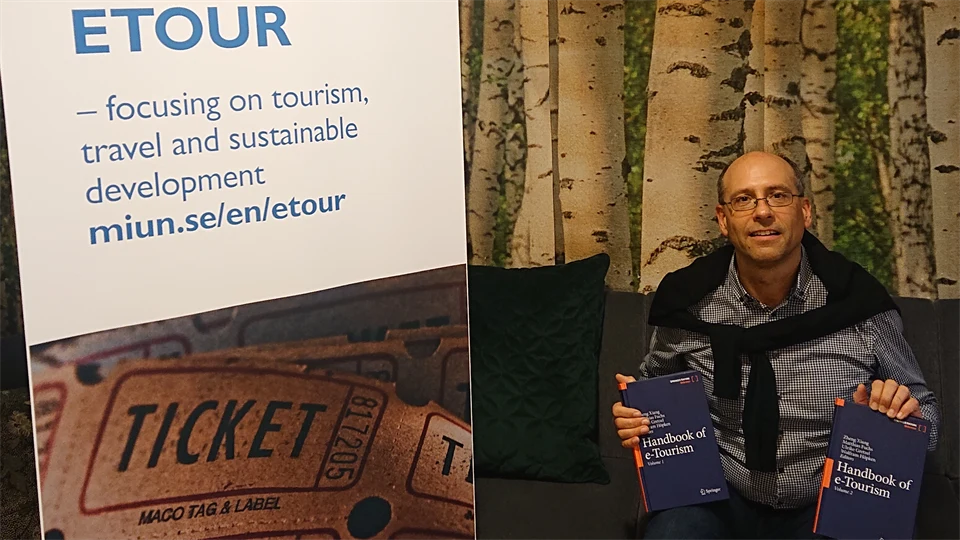Handbook of e‑Tourism
The idea was raised already in 2017. Three years of active work, 148 researchers involved and 2,000 pages later, he is now holding the two-kilogram book "Handbook of e-Tourism" which gives a broadened and in-depth picture of information and communication technology's impact and influence on tourism.
We spoke to Professor Matthias Fuchs about one of his many 'scientific babies'...
What would you say the book is about?
The book shows how the research field of e-Tourism has grown and how many different disciplines are included! The authors include tourism scholars like me, but also computer scientists, network engineers, marketing and information systems experts, researchers looking at consumer behavior, etc.
The book addresses established areas of study such as IT as a marketing tool in tourism, website design, destination management systems and tourist tracking (GPS and GIS). Newer themes such as recommendation systems, big data and data mining of traveler behavior are also covered. Of course, also how artificial intelligence (AI), virtual reality (VR), augmented reality (AR) and robotics are applied to change tourism already now and in the future.
But softer sides of IT are also addressed, such as technical mindfulness, trust, well-being, cultural and ethical issues and education related to e-Tourism. Very exciting I think!
Who should read the book?
It is primarily aimed at the academic sphere – students, researchers, professors who want to know what 30 years of research in the field has yielded. But if people who work in the tourism and hospitality industry want to form an opinion about e-Tourism and keep up to date with trends, this is a good source. Each chapter has a summary, so you can see it a bit like an encyclopedia of the research area. The book covers technical, theoretical, methodological and practical aspects of e-Tourism.
You yourself, as a leading researcher in e-Tourism, have written three chapters in the book. What would you say is your most important contribution?
You cannot talk about tourism without talking about the growing phenomenon of e-Tourism. In order to "do good tourism", new technology must be available. But one has to ask the question if all technology is good and provides increased business value for, for example, tourism entrepreneurs? I have become more and more of a critical researcher and we must understand that most of the challenges facing tourism as well as more global challenges cannot be solved by new or better information or communication technology alone. Instead, we also need to look at the etichal consequences. In order to meet the so-called "productivity paradox", which can arise when new technology is introduced, adaptation strategies are needed including the development of the companies' capacity, culture and organization. Only then can we fulfill the goals. I have reflected on that in chapter 47 "Strategic Use of Information Technologies in Tourism: A Review and Critique".
